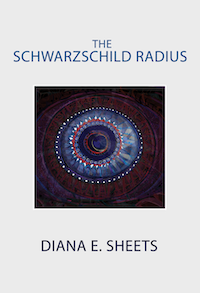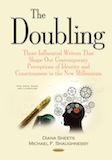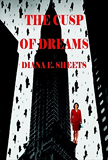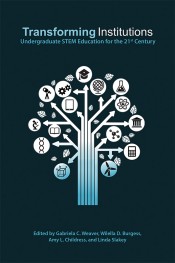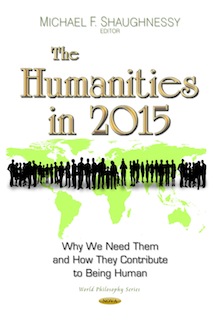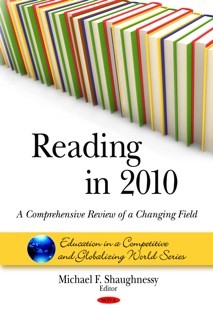The Great Books and Cultural Identity: The Rise and Fall of Western Memory and Its Implications for Our Time, Part III
Part
Author:
English and History Departments,
University of Illinois
Dedicated to Alvin B. Kernan
Whose scholarship celebrated the Western Canon
Contemporary Views of the Great Books
In providing a history of the Great Books, Alex Beam entitles his work A Great Idea at the Time: The Rise, Fall, and Curious Afterlife of the Great Books (PublicAffairs, 2008). But the title is erroneous. Either the Great Books is a great idea or not. Ironically, Beam’s story is the most moving when he interviews people whose lives have been unequivocally altered as a result of reading the Great Books. These people are substantial. They understand who they are within the larger context of a civilization. We want to talk to them. We are elevated by their words. In short, they become our “cultural heroes”. These are the individuals with whom, dear reader, you not only want to engage in a conversation, but would be prepared to join in the trenches. You may safely trust your life to someone who believes in the “manly” virtues of truth and excellence; however, do not expect to find valor and courage from a feminized cultural relativist.
Which brings us back to the issue of the Great Books and its inherent worth. If the teaching of the Great Books is essential for educating our society and if the intellectual ideas presented in the Great Books are still valuable, how could they be “a great idea at the time?” If they were a great idea, then, necessarily, they must be of importance today. Unless, that is, our cultural values have altered. If we subscribe to cultural relativity at the expense of truth and excellence, then reading about Western Civilization loses “currency”. But if this Canon of Great Books is of intrinsic worth, then, the question shifts to whether some books might be added and others discarded in order to ensure that it is representative of the best ideas that Western Civilization offers. If we have a belief in the intrinsic worth of our culture, then, we are compelled to discover our heritage. If cultural relativism has devalued our culture, rest assured it will not be long before these decadent values lead to our social annihilation.
The issue of the Great Books, that Canon of works that incites the imagination and represents the contents of our “Imaginary Library”, has long been a topic of considerable interest to literary critics. Ironically, in the universities it is within English Departments, more than almost any other discipline, that the Canon has dissolved and authoritative standards of truth and excellence have been abandoned. The late twentieth century has not been kind to literature. English Departments have responded by becoming post-disciplinary and politically destructive, advocating everything except their core subject in a misguided effort to justify their continued relevance (Louis Menand, “Undisciplined,” Wilson Quarterly, Autumn, 2001, 25, No. 4).
For many years one of the most passionate advocates of the Canon has been the literary critic Alvin Kernan. Despite his valiant efforts, by the end of the twentieth century the debate over which books should occupy a place in the “Imaginary Library”, that collection of works that would represent the culmination of Western Civilization, took a back seat to chronicling the demise of the novel and the death of romantic imagination. For the novel, as Kernan noted, is under assault: “Literature is ceasing . . . to seem believable and useful to large and important groups in the society” (The Imaginary Library: An Essay on Literature and Society, Princeton University Press, 1982, p. 32). Where once “the great books which had hitterto formed the basis of liberal education” had been celebrated, by the 1980’s they “were denounced as elitist, Eurocentric, and the tools of imperialism” (Kernan, The Death of Literature, Yale University Press, 1990, pp. 3-4).
Indeed, for a generation of scholars and readers “who matured intellectually in the ancient régime of high culture”, this denigration of Great Books and “dead white males” in favor of stories suffused in identity politics represented “nothing less than the setting of the sun of the human imagination in the evening-lands of Western Civilization” (Kernan, 1990, p. 6). “Literature”, suggested Kernan, “began to lose its authority, and consequently its reality, at the same time that the ability to read the book, literacy, was decreasing, that audiovisual images, film, television, and computer screen, were replacing the printed book as the most efficient and preferred source of entertainment and knowledge” (p. 9). Not surprisingly, he concluded, “Humanism’s long dream of learning, of arriving at some final truth by enough reading and writing, is breaking up in our time” (p. 135).
Then, there is the Old Testament prophet of literary criticism
For
“When you read a canonical work for the first time”, notes
However, not everyone accepts this argument. Kernan, for instance, characterizes
Whatever the reader’s assessment of
Thus, despite his insistence on “the individual self” as the “only method and the whole standard for apprehending aesthetic value” (1995, p. 22),
I think that the self, in its quest to be free and solitary, ultimately reads with one aim only: to confront greatness. This confrontation scarcely masks the desire to join greatness, which is the basis of the aesthetic experience once called the Sublime: the quest for a transcendence of limits. Our common fate is age, sickness, death, oblivion. Our common hope, tenuous but persistent, is for some version of survival. (1995, p. 489)
What may we conclude? The years since the publication of The Western Canon have not been favorable to great literature. By the late 1990’s Kernan published an edited collection of essays by notable scholars What’s Happened to the Humanities? (Princeton, 1997). It was a devastating account of the decline of academic scholarship, examining “the means by which poststructuralist methodologies succeeded in annihilating Enlightenment values . . ., thereby ensuring the triumph of postmodernism” (Diana E. Sheets, “Academe, Theory, and Our Cultural Demise”, http://www.literarygulag.com/blog/show/18, p. 1. Posted on May 12, 2008 and retrieved July 13, 2009).
In the new millennium Theory’s Empire: An Anthology of Dissent (
Two recent studies Reading at Risk (National Endowment for the Arts, Research Division Report, No. 46, June 2004. Retrieved July 15, 2009, from http://www.arts.gov/pub/ReadingAtRisk.pdf) and To Read or Not to Read (National Endowment for the Arts, Research Division Report, No. 47, November, 2007. Retrieved July 15, 2009, from http://www.nea.gov/research/ToRead.PDF) provide a wealth of evidence that reading and literacy are dying, thereby rendering moot the issue of whether we can revive the Western Canon. If we had any doubt that we are entering a “secondary orality” (Walter J. Ong, Orality and Literacy: The Technologizing of the Word, 1982, p. 11, v) that severely limits our ability to read and comprehend basic information, consider the assessment of
Consequences of the Rejection of the Great Books
Finally, that fateful question: What are the consequences of our loss of cultural memory? Foremost, of course, is that we lose our collective understanding of our heritage. We no longer share cultural perspectives that unite us. Our “waning of the sense of historical time” erases the past and annihilates our future. We live in the eternal present and are constantly surprised. We are motivated by “self”. But that “self” is so rudimentary that it is, effectively, devoid of consciousness. We do as others do. We feel as others feel. On a pragmatic level there is the possibility that another culture that retains its own history and aspirational values will dominate our nation, thereby determining not only our values but also our future. Under these circumstances we would migrate from our current quasi-zombie state into a state of “Otherness” in which our thoughts would be shaped by another society with its own distinctive world-view.
As distasteful as that prospect may be, the worst case scenario is one in which we—as a global civilization—would collectively lose consciousness. We would become entirely susceptible to suggestion since we would lose our analytical powers of reasoning. Our “group think” would be determined by a commoditized culture that would influence our motivations and our actions.
How might we behave under those circumstances? Our society would resemble that of ancient Greece as depicted by Julian Jaynes in his path-breaking work The Origin of Consciousness in the Breakdown of the Bicameral Mind (Houghton Mifflin Company, 1976). Society would be highly stratified; our actions would be dictated by authoritarian rule—with television and the Internet now also acting as our internal voice of suggestion. Since we would no longer read or think on any meaningful level, we would regress back to a bicameral mind where “voices” in our head, which we would interpret as those of God, would dictate our actions. We might have emotional responses to events, but we would have no conscious awareness of why we feel what we do or what causes us to react to the stimulus around us—except that there would be “voices” telling us how to respond.
Under these circumstances we would have no coping skills, no awareness of time with its diachronic reach from the past into the present and stretching well into the future. Instead, we would live in the eternal present. Our cultural memory would be void. We would have no narrative as a nation or as individuals that would assist us in navigating the world.
Not surprisingly, our circumstances would resemble the fate of classical music following Arnold Schoenberg’s introduction of the twelve-tone scale. The narrative of classical music died—though not without a noble fight from the Russian composers Prokofiev, Stravinsky, and Shostakovich. Without a musical story and left with only rhythm, dynamics, and timbre there remained nothing to hold the imagination of a listening audience. How easy, therefore, to replace classical music, once the foundation of Western Civilization, with rock ‘n’ roll and gangsta rap. For if there are no standards, if everything is relative, anything is acceptable and nothing memorable.
In this twilight state we would be unable to respond to anything but sensory stimulation: hunger, thirst, anger, fear. Intimacy: impossible. Community: a relic of the past. Instead, there would remain only a constant drone, an unbearable sameness—or nothingness.
This state of catastrophic anomie is nihilism incarnate, a state of nonbeing with no expectations, no history, no culture, no dreams, no hopes, no stories. Nothing could be worse for America or, for that matter, our globalized society. Under these circumstances the Second Law of Thermodynamics would prevail, ushering in the “Heat Death” of our World. Let us strive, therefore, to restore our culture, our aspirations, our dedication to the nurturance of the “Imaginary Library” while we still possess an ember of consciousness flickering in the dark.


